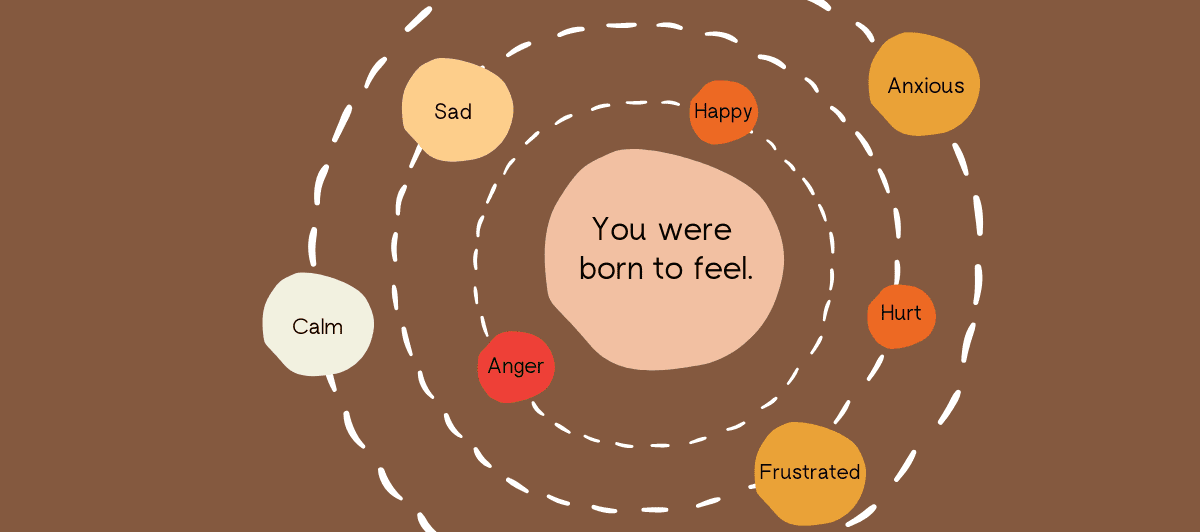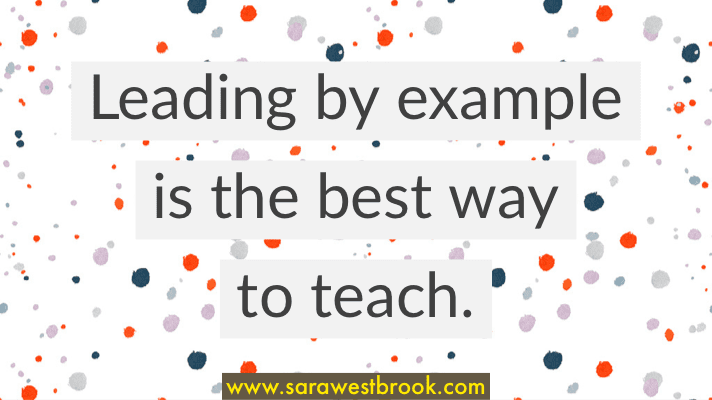
It’s Time to Stop Saying ‘I’m Fine’
I have helpful suggestions to implement in your day-to-day, but let’s start with some inner reflection before we get there. Read the following two scenarios and let me know what you think.
Scenario # 1: Your child/student asks, “Are you okay?” and you reply, “I’m fine,” even though you’re not. You feel a big emotion and they can clearly tell something’s off, but you don’t want to overwhelm them with your emotional state.
Scenario # 2: You ask your child/student, “Are you okay?” and they reply, “I’m fine.” You know they’re not fine, so you reassure them, “You can tell me anything.” They stick to their guns: “I’m fine.”
Hmm … What did you notice? There’s something concerning in both of these situations and it comes down to: Who do children learn from? Us.
Monkey See, Monkey Do
It’s no wonder that children mirror our actions—we’re their biggest role models. They follow our lead and if we don’t model what we want them to learn, how will they learn it? When we avoid sharing our emotions, we teach kids to do the same.
We all feel emotions. We all feel annoyed, angry, overwhelmed, embarrassed, sad, nervous, among others. So why don’t we feel free to express them? When we go to great lengths to hide these emotions and deny them, we teach kids avoidance and suppression – monkey see, monkey do. You know those old sayings are often true!
So what can we do?
How to Express Emotions
If I’ve learned anything from my career in educating others on emotional awareness and emotional management, it’s that it’s impossible to help a person overcome an emotion simply by saying, “Don’t feel that way.” Think of how you react when someone tells you “Just stop feeling X.” Even if they mean well, this statement probably does the opposite than they intended, then we’re back to square one.
Our kids are the same way. The students I present to tell me that when they feel flooded with an emotion, they can’t stop thinking about it, no matter how many times they’re told to just stop or let it go. And yet they have often learned from us that the socially acceptable thing to do is say ‘”I’m fine.”

As adults, it’s up to us to model healthy actions. Next time your child/student asks how you are feeling, if you are feeling a little less-than, it’s okay to tell them. Of course, we want to share our emotions in a productive way, so try the following suggestions:
- Step outside your comfort zone.
Choose to step outside your comfort zone by admitting your true feelings. For example, if you feel frustrated, it’s good to be honest and say “I’m feeling frustrated.” Share, in an age appropriate way, what triggered your frustration. If you find that you are not sure how you are feeling, use the Elephant in the Room poster to help.
2. It’s okay to not feel okay.
Let them know that emotions are natural and normal. Explain that it’s okay to feel not okay. Show them how to move through challenging emotions like frustration, anxious, overwhelmed.
When my son Kai, who is seven, is overwhelmed with emotion, I bend down so I am at his eye level and I say, ‘Kai breathe. Take a deep breath in and blow out slowly.’ I breathe with him.We repeat ‘the breath’ 3 times or whatever amount he needs in order to calm himself.
What’s something you could do to help you move through in a healthy way?’ Use Find Your Calm poster to discover more ways to move through emotions.
3. Be the role model.
It takes courage to admit when something feels off. Pretending everything is fine catches up to you. The TV show ‘Grey’s Anatomy’ put it best – ‘It’s a lie that both comforts and destroys.’ The next time you are about to say, “I’m fine”. STOP. As uncomfortable as it may be, remember that naming and moving through emotions allows you to connect and communicate a powerful part of yourself. By sharing how you are truly feeling, the children in your life will learn to do the same
By choosing to continuously model these suggestions, children learn the importance of emotional awareness and emotional management, which is hugely beneficial to building their resilience and well-being.
Until next time…

